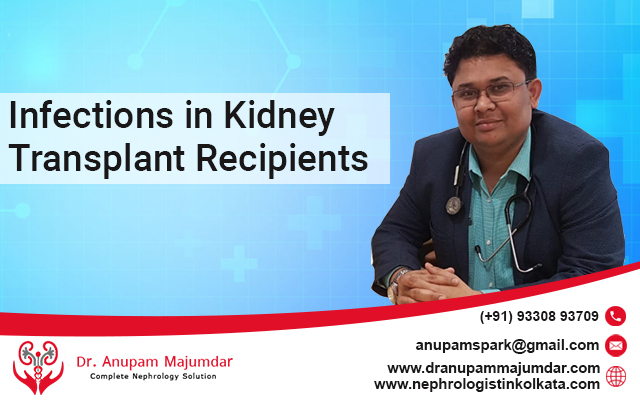Among the kidney transplant recipients, there are cases of morbidity and mortality due to infections. However, according to the opinion of doctors, these can be prevented. A kidney transplant doctor in Kolkata told us about post-transplant infections, which include:
Cytomegalovirus Infection
Many kidney transplant recipients suffer from Cytomegalovirus (CMV) infection. Different risk factors can lead to this infection. These are the use of induction immunosuppression, donor seropositivity, old donors, simultaneous kidney-pancreas transplantation, presence of allograft rejection and concurrent infection from other viruses.
EBV Infection and PTLD
A major cause of morbidity and mortality after kidney transplant is infection from Epstein-Barr virus (EBV) as it has a connection with PTLD development. Transplant recipients often suffer from this condition, which is known as lymphoid proliferation. The presence of it may be in different organs. It has two types, monomorphic and polymorphic and there is normally the involvement of the B cells in it. A kidney specialist in Agartala can help in managing this infection.
BK Polyomavirus Infection
There is the association of BK polyomavirus (BKV), which is a member of the polyoma family of viruses, with polyomavirus-associated hemorrhagic cystitis and polyomavirus-associated nephropathy (PyVAN). Some kidney transplant recipients suffer from this infection.
HCV Infection
There are morbidity and mortality from HCV in kidney transplant recipients. It is most common in patients with ESRD. It can happen after transplantation and the cause is sometimes donor-derived infection. There is a decreased survival rate among kidney transplant recipients with HCV infection.
Urinary Tract Infections
The most common bacterial infections, from which kidney transplant recipients suffer, are urinary tract infections (UTIs). Many complications normally follow these, which are postoperative infections, pneumonia and septicemia. The risk of UTIs is more in women. Some factors can increase the risk of UTIs. These include kidney-pancreas transplantation with bladder drainage, deceased-donor transplant, prolonged catheterization, increased immunosuppressed state and the use of ureterovesical stents. Take advice from a nephrologist in Agartala on how to manage these infections.
Mycobacterium Tuberculosis Infection
There is a risk of Mycobacterium tuberculosis among kidney transplant recipients. It is mainly found in those who had positive tuberculin skin test reactions before transplantation.
P. jiroveci Infection
Although rare, P. jiroveci pneumonia (PCP) is a cause of mortality in kidney transplant recipients. The symptoms normally include cough, shortness of breath and fever.
Other Fungal Infections
There can be fungal infections in kidney transplant recipients, who are hospitalized. In them, the three leading sites of fungal infections are esophageal candidiasis, pneumonia and urogenital candidiasis.
Those who have undergone kidney transplant have the risk of suffering from community-acquired pneumonia in the future. Moreover, in these tough times, when Corona cases have spread all over the world, post-COVID-19 pneumonia can lead to serious complications in kidney transplant recipients.
Despite the risk of infections associated with a kidney transplant, it is an important treatment option for kidney failure. Moreover, the modern advancements in the medical field have lessened the risk. There are proper diagnosis and treatment available for these infections. So, if you need to undergo a kidney transplant, consult your doctor and take the necessary precautions to avoid complications after the surgery.

